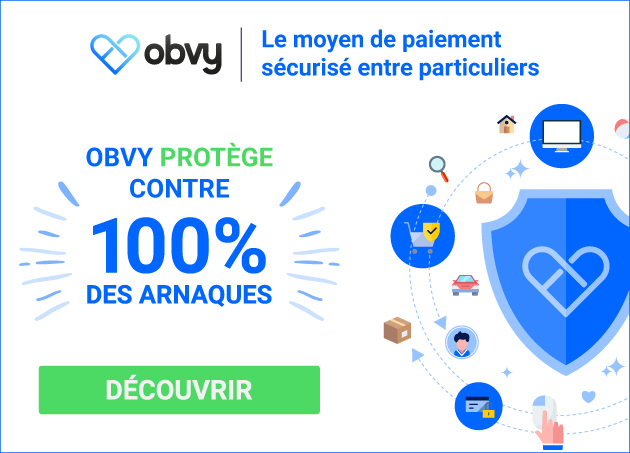Cheque scams between individuals: how can you avoid them?
Cheque scams come in a wide variety of forms: wooden cheques, stolen cheques, forged cheques... You might think that the end of cheque scams is just around the corner, but cheques are still around. Even though everyone is saying it's dead, this little piece of paper is used to pay for nearly 2 billion transactions every year in France! But this method of payment can also be very dangerous, especially between private individuals. There is no way of ensuring that it is funded, and the number of frauds continues to rise: +9% in 2018.
Even today, a huge number of transactions between private individuals are settled by cheque. This practical means of payment continues to appeal to a certain segment of the population. In general, the process is fairly straightforward:
For deliveries :
- The buyer sends the cheque by post,
- On receipt of the cheque, the seller deposits it at the bank and sends it on.
For hand-deliveries:
- The buyer writes a cheque to the seller,
- The seller takes the cheque against the object of the transaction.
Why crooks love cheques
1 - Several days for the bank to react
Even if you cash the cheque and the balance appears in your account, it turns out to be an amount credited "under reserve". In other words, the bank has a period of time, generally 10 working days, to realise that the cheque is a fake and to withdraw the money if it is. I might as well tell you that this would be a very, very bad surprise and that the fraudster will not give you any opportunity to claim what he owes you.
What's more, in most cases you won't have a reliable way of getting in touch with them to inform them of the problem and try to get paid. Many scammers use pre-paid numbers that are impossible to trace.
2 - We always tend to trust too much
If we're in a hurry to sell or come face to face with a buyer who seems trustworthy, many of us want to trust too easily and close the deal. It can also happen that a seller doesn't want to offend the person or is too litigious. A serious mistake!
Crooks are well aware of the "pressure" a seller may feel during a sale, and will take advantage of it to try to induce your emotions so that you accept the transaction. Faced with a fait accompli when a seller is handed a cheque, they often take ill-considered risks and, in most cases, accept.
Register now on Obvy and get £5 free with the code STOPARNAQUE
Sometimes tempting methods
To prove their good faith, some scammers try to put their victims in a false position of dominance. They send you a cheque for more than the purchase price to prove that they can be trusted. Once the cheque has been cashed, and they ask you to send them the item, they ask you to send them the difference by a payment method such as Western Union!
In another case, the scammer will send you a cheque for a higher amount to cover delivery costs and will ask you for the excess once the order has been dispatched. This is another scam.
But here's the thing: once the difference has been reimbursed and the bank realises that the cheque has bounced, you will have lost even more money (the amount of the property you were selling plus the reimbursed "difference").
Cheques: a method of payment to be avoided between private individuals
Never accept cheques for payments between individuals - the risks are far too great. With bank verification times, uncertainty about the origin of the money and the high risk of bounced payments, this is definitely one of the best ways of getting ripped off. Never forget that, as a seller, you have the choice of imposing your own rules, and that a good sale should always be made on your terms rather than risk non-payment, if not more.
It's dangerous to accept a cheque (just like a cashier's cheque, which can be forged), but an offer to pay more than your selling price should immediately set off alarm bells and make you extremely wary.
The sensible choice: Obvy secure payment
Obvy is the only payment method between private individuals that has been specially designed to ensure the security of both buyer and seller. A transaction on Obvy only takes place if the money has been paid into the Obvy secure account, so the seller can be sure of being paid if the transaction is finalised. As far as the buyer is concerned, he or she can withdraw from the transaction if there are any problems, and therefore does not have to pay in advance. This is undoubtedly the ideal solution for avoiding any scams, including bounced cheques!
The next time you sell on an ad site, remember to ask for payment by Obvy!

